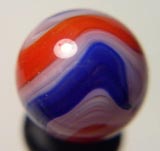Cast iron toys became widespread in the late 19th century. The golden age of toy development was at the turn of the 20th century. In 1897, plasticine was invented, and in 1900 commercial production of the material as a children's toy began. Frank Hornby was responsible for the invention and production of three of the most popular lines of toys based on engineering principles in the twentieth century: Meccano, Hornby Model Railways and Dinky Toys. Meccano was a model construction system that consisted of re-usable metal strips, plates, angle girders, wheels, axles and gears, with nuts and bolts to connect the pieces and enabled the building of working models and mechanical devices. Dinky Toys pioneered the manufacture of die-cast toys with the production of toy cars, trains and ships and model train sets became popular in the 1920s. The Britain's company revolutionized the production of toy soldiers with the invention of the process of hollow casting in lead in 1893, and the company's products are still produced today.
Louis Marx and Company was an American toy manufacturer in business from 1919 to 1980. Marx's toys included tinplate buildings, tin toys, toy soldiers, playsets, toy dinosaurs, mechanical toys, toy guns, action figures, dolls, dollhouses, toy cars and trucks, and HO scale and O scale trains. Marx also made several models of typewriters for children. Marx's less expensive toys were extremely common in dime stores, and its larger, costlier toys were staples for catalog retailers such as Sears, Montgomery Ward, J. C. Penney and Spiegel especially around Christmas. J. Chein & Company was one of Marx's principal wind-up toy competitors, in business from 1903 through the 1980s.
In this category we offer vintage and antique toys of all types.







 Buy Akro Agate Popeye marbles on eBay!
Buy Akro Agate Popeye marbles on eBay!